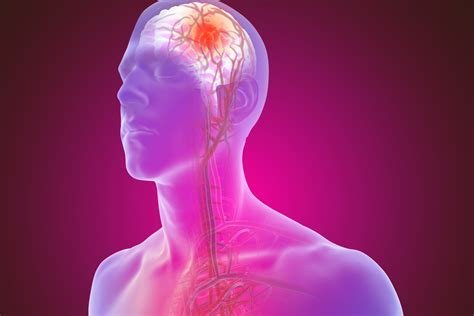GNT Pharma Announces Promising Nelonemdaz Results, Initiates Global Phase 3 Stroke Trials
12 December 2024 | Thursday | News

Image Source : Public Domain
** IND submitted to the FDA showing significantly improved patient condition when administered within 70 minutes of arrival at the Emergency Room **
*Multinational Phase 3 Clinical Trial protocols confirmed and initiated with leading global stroke research centers *
GNT Pharma Co. Ltd, a late-stage pharmaceutical company founded in 1998 with offices in Seoul Korea, Italy and USA, announced the results of its latest Phase II ('SONIC') and Phase III ('Rodin') clinical trials study showing that stroke patients who received early administration of Nelonemdaz in combination with endovascular thrombectomy, demonstrated significant improvements in outcomes.
These results were presented by Professor Jin Soo Lee, Chair of the Department of Neurology at Ajou University Medical Center at the recent International Conference Stroke Update 2024 (ICSU 2024).
Dr BJ Gwag, Chairman and CEO of GNT Pharma commented "we are extremely encouraged with the SONIC and RODIN clinical trials results and excited to announce we have initiated multinational Phase 3 Clinical Trials (RENEW) with world class partners, including more than 20 top university hospitals in Korea as well as UCLA and UPMC Stroke Centers in the USA."
Nelonemdaz is the world's first "multi-target" neuroprotection drug designed to reduce brain damage after a stroke or cardiac arrest. It offers superior efficacy compared to single-target neuroprotectants offering dual target action: (1) Inhibition of NMDA receptor subtype NR2B to safely reduce excitotoxicity; and (2) Removal of free radicals to reduce oxidative stress – two major causes of brain cell death following a stroke. Unlike non-selective NMDA receptor inhibitors, Nelonemdaz does not cause adverse effects and its safety has been verified in two Phase 1 trials, three Phase 2 trials, and two Phase 3 trials.
There are over 5 million stroke-related deaths globally each year, with a further 5 million survivors annually left with permanent disabilities. This puts a huge strain on healthcare systems worldwide - the World Stoke Organization estimates total stroke-related costs to tip US$1 trillion by 2030. Moreover, stroke frequency is not abating, with the USA seeing an increase of 60% over the past 30 years. Almost 80% of all strokes are Ischemic Strokes and require emergency medical treatment, typically thrombolysis or endovascular thrombectomy. Given these alarming statistics, there is a global imperative to further improve the efficacy of current stroke treatments. Dr Gwag adds:
"In 2015, fast endovascular thrombectomy was proven to improve functional outcome in acute ischemic stroke patients and is the de facto standard for stroke care across the world. It is therefore encouraging that the outcome of stroke patients is further improved by the fast administration of Nelonemdaz along with rapid thrombectomy,"
The prior Phase 2 SONIC trial results, published in Stroke Journal in 2022, showed the promising efficacy and safety of Nelonemdaz administered to stroke patients receiving thrombectomy. In the latest 498 patient Phase 3 RODIN Trial, administration of Nelonemdaz within 12 hours of ischemic stroke onset did not show significant efficacy in patients treated with thrombectomy. However, post-hoc analyses revealed potential interactions between treatment effects and time-related metrics. The RODIN results are to be published in the 'JAMA' (Journal of the American Medical Association) Network Open.
The interactions were shown in the pooled analysis of stroke patients participating in the SONIC and RODIN trials, and in the subsequent subgroup analysis, the first infusion time of Nelonemdaz for improved functional outcome was established to be within 70 minutes from ER arrival.
The efficacy of Nelonemdaz was assessed using the modified Rankin Scale (mRS), an ordinal scale ranging from 0 (normal) to 6 (death), at 12 weeks post-treatment. Compared to the placebo, the nelonemdaz caused a significantly beneficial shift in the mRS distribution (common odds ratio 2.2, p<0.05). The proportion of patients in mRS 0-2 corresponding to functional independence was 50.0% in the placebo group and improved to 68.6% in the Nelonemdaz group (p=0.059).
Dr Lee adds " "Our post-hoc analyses unveiled a best clinical trial condition that showed a significant benefit of Nelonemdaz, and a protocol for the global phase 3 RENEW trial was established to confirm beneficial effects of Nelonemdaz in ischemic stroke patients in combination with endovascular thrombectomy." Dr. Lee will lead the RENEW trial alongside principal USA investigators Dr. Raul Nogueira, director of the UPMC Stroke Institute and Professor of Neurology and Dr. David S. Liebeskind, Director of the UCLA Stroke Center and Professor of Neurology.
Most Read
- How Does GLP-1 Work?
- Innovations In Magnetic Resonance Imaging Introduced By United Imaging
- Management of Relapsed/Refractory Multiple Myeloma
- 2025 Drug Approvals, Decoded: What Every Biopharma Leader Needs to Know
- BioPharma Manufacturing Resilience: Lessons From Capacity Expansion and Supply Chain Resets from 2025
- APAC Biopharma Review 2025: Innovation, Investment, and Influence on the Global Stage
- Top 25 Biotech Innovations Redefining Health And Planet In 2025
- The New AI Gold Rush: Western Pharma’s Billion-Dollar Bet on Chinese Biotech
- Single-Use Systems Are Rewiring Biopharma Manufacturing
- The State of Biotech and Life Science Jobs in Asia Pacific – 2025
- Asia-Pacific Leads the Charge: Latest Global BioSupplier Technologies of 2025
- Invisible Threats, Visible Risks: How the Nitrosamine Crisis Reshaped Asia’s Pharmaceutical Quality Landscape
Bio Jobs
- Sanofi Turns The Page As Belén Garijo Steps In And Paul Hudson Steps Out
- Global Survey Reveals Nearly 40% of Employees Facing Fertility Challenges Consider Leaving Their Jobs
- BioMed X and AbbVie Begin Global Search for Bold Neuroscience Talent To Decode the Biology of Anhedonia
- Thermo Fisher Expands Bengaluru R&D Centre to Advance Antibody Innovation and Strengthen India’s Life Sciences Ecosystem
- Accord Plasma (Intas Group) Acquires Prothya Biosolutions to Expand Global Plasma Capabilities
- ACG Announces $200 Million Investment to Establish First U.S. Capsule Manufacturing Facility in Atlanta
- AstraZeneca Invests $4.5 Billion to Build Advanced Manufacturing Facility in Virginia, Expanding U.S. Medicine Production
News











